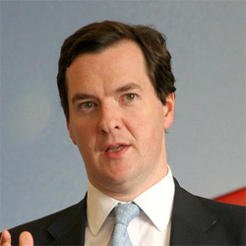Charity Finance Group, Navca and the Small Charities Coalition have jointly written to the Chancellor of the Exchequer calling for the Charity Commission’s budget to return to its 2009/10 level.
Writing ahead of Wednesday’s spending review, the sector bodies have said that over the last few years a number of “incidents have raised concerns about the regulation of the sector”, and that without additional resources, the “Commission will struggle to carry out its functions in the future”.
The groups are calling for the regulator’s budget to return to its 2009/10 level – when the Commission’s expenditure was £31.4m, compared with £21.4m in 2014/15.
The letter said of restoring the funding: “This will remove concerns about its ability to fully carry out investigations and compliance work without comprising important guidance and support functions for charities and trustees in meeting charity law requirements.”
The letter, which was sent to George Osborne on Friday, has been signed by the three organisation’s chief executives: Caron Bradshaw at CFG, Neil Cleeveley at Navca, and John Barrett, acting chief executive of the Small Charities Coalition.
It refers to chair of the Charity Commission William Shawcross’s acknowledgement that continual “salami-slicing” will mean the regulator won’t be able to do its job at all.
It states that although the government’s “recent decision to provide an additional £9m to the Charity Commission over the next three years is a positive step, it does not go far enough”.
Citing funding cuts of 50 per cent to the Commission’s budget since 2007/08, it states: “Whilst we accept savings are required across government, we believe that cutting the Charity Commission‟s budget has been, and continues to be, a false economy.
"It is far better for charities, for the taxpayer, and most importantly for charitable beneficiaries to invest in regulation which prevents problems arising, which helps well-intentioned trustees avoid mistakes, rather than dealing with problems only when they reach crisis point.”
It goes on to state that much of the £11bn that charities raised in voluntary income in 2012/13 goes towards “underpinning the work of other public services or delivering preventative interventions which save public money”. It says that “cutting back on the funding of the Commission risks less money being raised and the state being asked to find more resources to meet the demand created – again, a false economy".
Sector bodies against charities funding own regulator
The sector bodies have also used the letter to state their opposition to funding alternatives such as charities paying for their own regulation.
It said: “Unlike other organisations, charities are not profit-making. As a consequence, the cost of regulation would have to be taken directly from money that would otherwise go to delivering public benefit.
“Moreover, charging would also create inefficiencies and administration costs as the Commission would have to institute a new collection and management regime. This is considerably less efficient than the current system which has a single transfer of resources straight to the Charity Commission.”
It referenced the rejection of these proposals back in 2012, when the Public Administration Select Committee called it “quite simply, a tax on charities and charitable work”.








